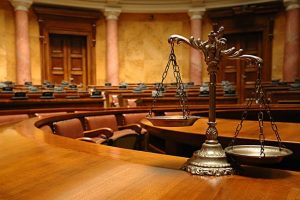 The Stars Group, previously known as Amaya Gaming Group, is one of the largest online gambling companies in the industry. The Toronto-based gambling operator made the headlines in the past couple of years as its founder and former Chief Executive, David Baazov, found himself at the centre of a massive scandal after facing accusations of insider trading and market manipulation.
The Stars Group, previously known as Amaya Gaming Group, is one of the largest online gambling companies in the industry. The Toronto-based gambling operator made the headlines in the past couple of years as its founder and former Chief Executive, David Baazov, found himself at the centre of a massive scandal after facing accusations of insider trading and market manipulation.
It all started back in 2014 when Amaya acquired the privately held company Oldford Group, which at the time owned and managed the online poker platforms Full Tilt and PokerStars. The two parties sealed the deal for $4.9 billion. The agreement turned Amaya into one of the largest online gaming companies in the industry. In December of the same year, Quebec’s financial regulator Autorite des Marches Financiers raided Amaya offices in Pointe-Claire, Montreal.
The Accusations
 Following the important acquisition of Oldford Group, the Quebec financial regulator filed a total of 23 charges against three individuals and three companies in 2016. Five of those charges were filed against Baazov specifically and were described by Sylvain Theberge, a spokesperson of Autorite des Marches Financiers, as “very serious” since they had to do with influencing the stock-market price of Amaya Gaming Group and the possession and communication of inside information.
Following the important acquisition of Oldford Group, the Quebec financial regulator filed a total of 23 charges against three individuals and three companies in 2016. Five of those charges were filed against Baazov specifically and were described by Sylvain Theberge, a spokesperson of Autorite des Marches Financiers, as “very serious” since they had to do with influencing the stock-market price of Amaya Gaming Group and the possession and communication of inside information.
Apart from that, Baazov was also accused of market manipulation. The former Amaya Chief Executive addressed the accusations in a public statement, pleaded “not guilty”, and expressed his confidence that he would be found innocent on all five charges.
Baazov Attorney Stall the Case Due to Court Delays
 Over three years after Amaya’s acquisition of Full Tilt and PokerStars, its former CEO was brought to court, along with two other co-defendants, to face charges of market manipulation and insider trading.
Over three years after Amaya’s acquisition of Full Tilt and PokerStars, its former CEO was brought to court, along with two other co-defendants, to face charges of market manipulation and insider trading.
However, the trial was stalled almost immediately after Baazov and his attorneys filed a motion in an attempt to stay the charges. The defense argued the case was mishandled and could not be processed within a reasonable timeframe.
The case was overseen by Judge Salvatore Mascia who insisted on hearing the testimonies of the witnesses before he arrived at a final decision of whether to approve the motion or not. Judge Mascia was particularly interested in understanding why some of the evidence of the prosecution was accidentally released to the defense.
One of the points made by Baazov’s attorneys in an attempt to dismiss the charges was that the prosecution did not bring the case to court in a reasonable time. The defense tried to use the so-called “Jordan Ruling” to their advantage. It establishes specific timeframes within each trial must be heard.
As Baazov’s case was overseen by the Provincial Court of Quebec, his trial was supposed to be resolved within a period of 18 months after the charges against him had been laid. Since the Court failed to arrive at a decision within this timeframe, the attorneys suggested the charges against their client should be dropped in accordance with the Jordan Ruling.
The initial hearing of the case was supposed to take place on 20th November 2017 but the Court faced the labour-intensive task of examining a hard drive that stored over 16 million documents related to the case. This huge amount of information corresponded to 3.7 terabytes.
This piece of evidence was initially seized as a part of a related investigation that was referred to as Project Bronze, which also had to do with the insider-trading accusations. The Project Bronze involved a couple dozen other individuals who were accused of illegal gains resulting from corporate transactions that revolved around Amaya’s acquisitions.
At the time the hard drive was seized, Baazov’s attorney Sophie Melchers unveiled that it would take as much as C$505,000 and four to five weeks to process and convert all the information this piece of hardware contained. Melchers then explained that given the huge amount of data they were dealing with, Baazov’s counsel would require no less than six months to prep up for their client’s defense.
The examination of the hard drive documents started later than expected, in September 2017, so that the defense was not given a sufficient amount of time to analyze them all.
The Jordan Ruling tactics did not render the desired results since Judge Salvatore Mascia turned down the motion to drop down the charges altogether. Judge Mascia agreed, however, to postpone the trial until the defense has analyzed the data from the seized hard-drive in full.
Mascia ordered for the trial to proceed in December 2017 but then postponed it again as he insisted he needed more time to consider the defense’s request to stay the charges.
Baazov’s Trial Gets Postponed until April 2018
 Baazov’s trial was supposed to take place on 26th February 2018 but Judge Mascia experienced a change of heart and decided to postpone it again until 16th April after Baazov’s attorneys asked for more time to analyze the evidence against the former Amaya CEO. In January, Judge Mascia rejected the defense request to stay the charges and sided with the Quebec’s financial regulator, stating the Court had sufficient justification to proceed with the trial.
Baazov’s trial was supposed to take place on 26th February 2018 but Judge Mascia experienced a change of heart and decided to postpone it again until 16th April after Baazov’s attorneys asked for more time to analyze the evidence against the former Amaya CEO. In January, Judge Mascia rejected the defense request to stay the charges and sided with the Quebec’s financial regulator, stating the Court had sufficient justification to proceed with the trial.
Judge Mascia’s decision to postpone the trial till April was again prompted by the financial regulator’s delays in presenting the hard-drive evidence to the defense to analyze in a timely manner. Another problem resulted from the fact much of the documents on the said hard drive were not specifically related to Baazov’s charges.His legal team needed more time to sift through all the information and find the relative data that applies to their client’s case.
A spokesperson of the former CEO of Amaya revealed last month that Baazov’s legal team had expressed concerns that the bulk of evidence might increase in the process of analyzing the data. If the trail against Baazov indeed takes place on 16th April the legal proceedings are expected to spread over a period of 70 days. Therefore, the proceedings are to last until September 2018.
Following the charges of the Quebec financial regulatory body, Baazov resigned from his position as Chief Executive in the summer of 2016. He then proceeded to sell most of his Amaya shares to collect a hefty paycheck of C$133 million. In an attempt to distance itself from the entire insider-trading scandal associated with Baazov, Amaya Gaming Group rebranded itself as the Stars Group in June 2017.
If found guilty of insider trading and market manipulation, the “King of Online Gambling”, as Baazov is sometimes referred to, faces a sentence of 5 years in jail. To add insult to injury, Amaya’s founder and former CEO will have to pay a hefty fine amounting to C$5 million.



















